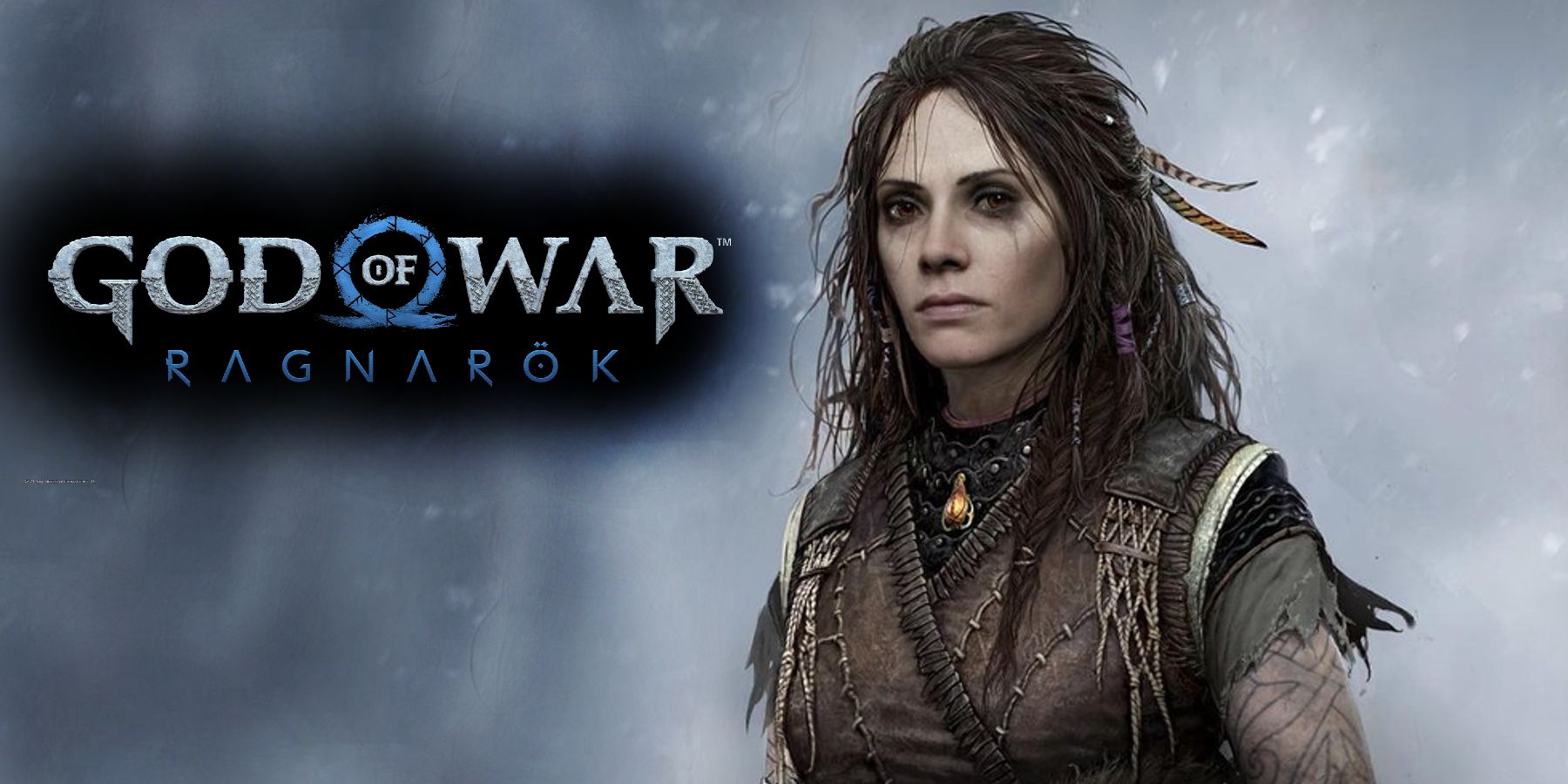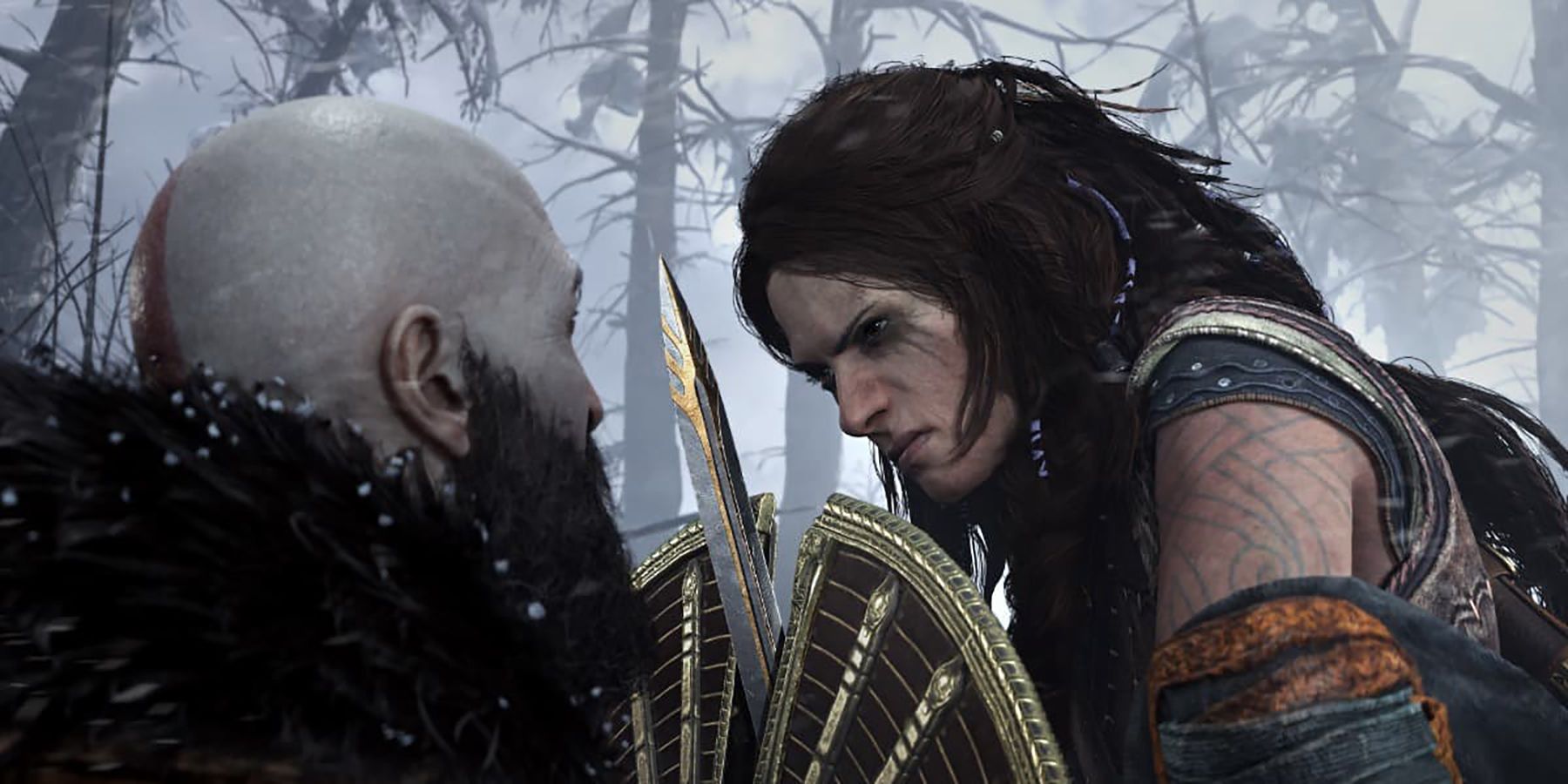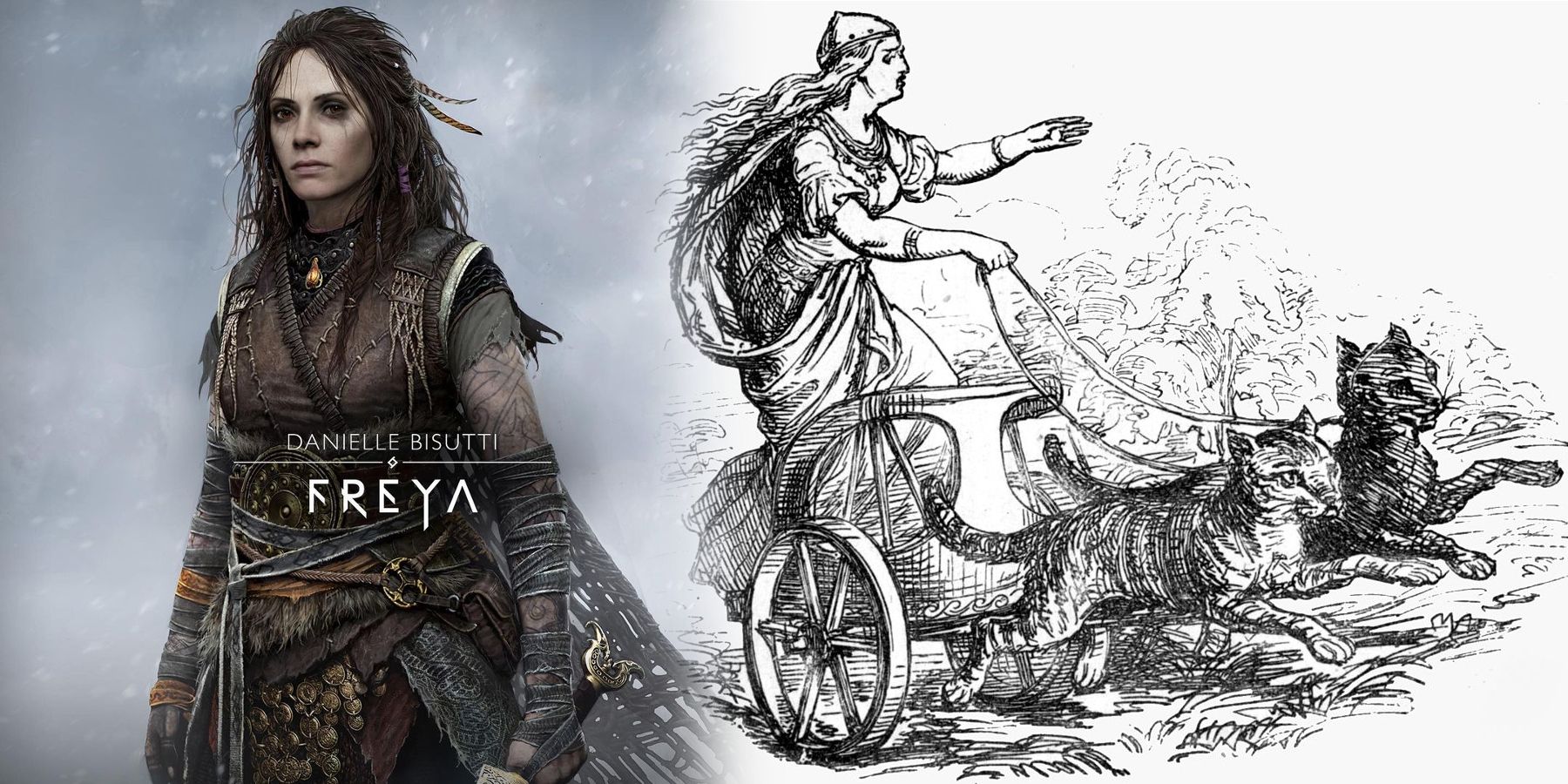In the upcoming God of War: Ragnarok, Kratos will have quite a few threats to deal with, the biggest of these being Thor and Freya. One of the biggest bolsters of God of War's ongoing success is the way it weaves stories from ancient mythology into the fast-paced combat and intricate puzzle gameplay. Naturally, some liberties need to be taken in creating a cohesive narrative incorporating various myths and legends. The end of the last game dropped a major bomb about the identity of Loki, and while it remains to be seen how the Loki twist will play out in the sequel, there's certainly a lot of mythology the dev team can draw upon. This is particularly true about Freya, one of the most important Norse gods and one with a well-established animosity to Loki.
As is typical of mythology, stories about Freya are diverse and sometimes contradictory. The biggest challenge facing the God of War developers is scaling these stories down and fitting them within the narrative of the games. There have already been numerous references to mythological stories about Freya in the first game, and it's also apparent that the games are using the interpretation that the goddess Freyja (an older Norse spelling of Freya) and Frigg are one and the same. Freya in the games is known by both names, as well as the Witch of the Woods. For the purposes of clarity, Freyja will refer to the mythological figure and Freya to the game character below.
Freya in the Games So Far
As mentioned, the Freya seen in 2018's God of War is an amalgamation of the goddesses Freyja and Frigg. Frigg is also where the day Friday comes from, derived from Frigg's Day. While both of these goddesses are referred to as the wife of Odin, it is Frigg who is the mother of Baldur who later dies because of Loki.
Frigg is associated with motherhood, marriage, and prophesy, and in some sources, she and Freyja are referred to as different people. The rest of Freya's characterization in God of War mainly draws on mythological stories about Freyja. There are some references in mythology to Freyja being able to turn into a bird, as we see in God of War, but it is clear she a magical being and is associated with bringing magic to the Aesir gods, such as Odin. The goddess Freyja is actually a Vanir god, as is Freya in the games.
Freyja is often referenced to have a boar companion, who was once a man named Hildisvini; this is the boar Atreus shoots in God of War. Like most Norse gods, Freyja is not known to be timid, and Freya's characterization in the game aligns well with this. Freyja has a necklace known as Brisingamen that is frequently referenced in mythology, which can be seen on Freya in the game but bears Baldur's name in ruins. In mythology, this is a gift from the dwarves, but in the game, it is from Baldur. Freya in-game is also mentioned to be a former queen of the Valkyries, although as mentioned below, this is debatable in mythology.
Mythology the Game Hasn't Touched on Yet
There are a couple of key aspects to myths about Freyja that haven't appeared in the game thus far. One is Freyja's chariot drawn by cats, which wouldn't have huge significance for God of War: Ragnarok, but would be fun to see. However, since Freya is now an enemy of Kratos, it's more pertinent to examine who her allies are in mythology. One such character is Freyja's brother, Freyr, not yet seen in the game but would make sense for an appearance in Ragnarok. Freyr and Freyja are twins, but Freyr is associated with peace and prosperity so it would be interesting to see how the game characterizes him.
In mythology, Freyja is sometimes closely associated with the Valkyries. The reason for this is that while half of those who die in battle go to Valhalla, the other half actually go to Freyja's heavenly field, Folkvangr. Some interpret this to mean Freyja is a Valkyrie, but regardless of whether she is, Freyja being in control of half of the dead has huge implications. The dead in Valhalla rise up to assist Odin for Ragnarok, so Freya having access to this kind of backup could cause serious problems for Kratos and Atreus. There's been no mention of Folkvangr in the games so far, so it's entirely speculation at this point whether it may figure into the story yet.
The Valkyries are obviously known for escorting those who die in battle to Valhalla, but they were also some of the most interesting, and difficult, bosses in God of War. There is no mythological equivalent to the Valkyries for Folkvangr, specifically, but the association of Freyja with the Valkyries does open the door for these mighty warriors to reappear in God of War: Ragnarok. In God of War, Kratos frees the Valkyries from a curse placed on them by Odin, supposedly in retaliation after Freya was replaced as their queen. Freya as a former queen of the Valkyries who is the reason they are cursed also means we may see the Valkyrie fight against Freya in Ragnarok, which would be sure to result in an impressive battle.
While Freya will be a major antagonist in the next God of War game, Kratos will also have Thor to contend with. Since the developers have revealed that God of War: Ragnarok will be the last game to take place within the Norse world, there is a tonne of mythological stories that probably won't get included. Both Thor and Freyja are major figures in Norse mythology, and so it makes sense for them to have big roles in Ragnarok. Since the Freya seen in the game is also Frigg and mother to the now-dead Baldur, it's highly likely her story arc will be closely linked to Atreus'. Of course, with Ragnarok coming up, it's possible that any number of gods could appear (and potentially die) in the upcoming game.
God of War: Ragnarok is set to release in 2022 for PS4 and PS5.



